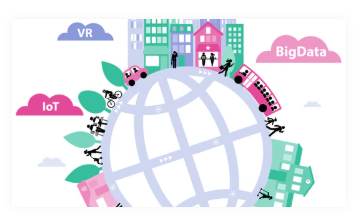Digital transformation of megapolises: from zero to #1 in UN digital e-government ranking free videos and free material uploaded by Higher School of Economics Staff .
Introduction.
In this module we meet the authors of the course and together will consider the main definitions and approaches to the smart city and examples of smart cities around the world. We will deal with the question of whether there is a universal approach to defining smart cities.
Smart City structure/architecture.
During this module we will understand what parts of the smart city structure are built from. Which areas are affected by digitalization and what consequences it will have for the residents. We will consider the world practices of digitalization of various spheres of urban life and projects implemented in Moscow in detail. We will talk about the controversial issue of electronic voting on concrete examples.
Efficient government.
Building an Effective Government will be considered this week. Good governance requires effective government. Organization of urban economy is essential for effective activity. First of all, we need for effective solutions in the sphere of service provision. It is the urban economy and finance and the provision of modern equipment for civil servants. We’ll look at the urban economy parts: cloud accounting, open budget and e-procurement.
Smart City infrastructure
This module will cover three main sections: physical infrastructure, logical infrastructure and data infrastructure. Let's look at constituents of the ICT infrastructure and how to form it. We will also study the cybersecurity issues in smart city.
City digital transformation program.
We will consider the goals of digital transformation, key performance indicators: how they are defined by cities, what KPI systems exist in the direction of a smart city. We will also consider models of smart city maturity, approaches to digital transformation on the example of Moscow and New York. We will study the stages of digital transformation program creation, possible structures of digitalization management or IT industry in the city.
Financial mechanisms of digital transformation program realization.
We will consider the main types of contracts (classical contract, service contract, concession, etc.), advantages and disadvantages and concrete examples of the application of various contracts. We will also consider possible ways of implementing a project with limited financing (PPP, business implementation), as well as attracting money to the budget through digitalization.
Implementing disruptive technologies to urban management:
On this week we will look at disruptive technologies - there are key technology trends which set the vector for the development of the world's smart cities. They support, and often ensure the functioning of many smart initiatives, and affect all spheres of public life. Let's look at concrete examples of the application of various types of end-to-end technologies in cities around the world.
City digital transformation projects success factors.
On the last week we will answer to the questions:
What are the main problems which may arise on the path of digital transformation?
How to build an effective marketing or promotion system for the city and urban services?
What we know about the citizen?
Why is communication matrix needed and how is it formed? What indices can we use for the evaluation of smart city projects?
This course will help you to navigate ambiguity in definitions of "Smart City". You can review successful cases and practices of different approaches to transformation management, determine the potential of your city in the digital transformation, as well as find useful practical advices on search for funding of various digital projects in your city. In addition, lecturers introduce you with formation of Smart City structure and infrastructure from the officials’ point of view.
If you are already an expert in the field of Smart Cities, the course will give you the opportunity to assess your strengths and to improve knowledge in this field. You will gain additional skills in managing digital transformation programs with real examples, as well as you will be acquainted with communication methods and marketing of government projects.

- 0 Reviews
- 0 Students
- 75 Courses

Write a public review